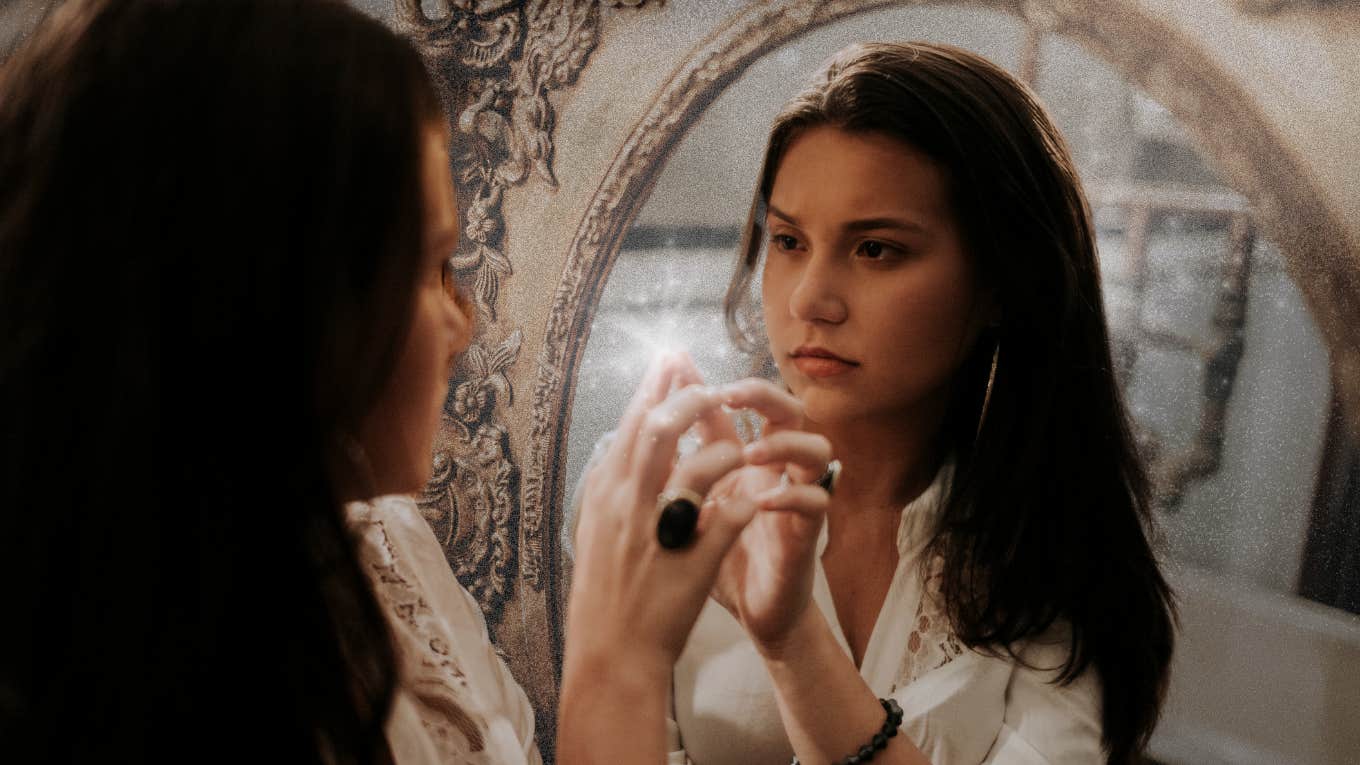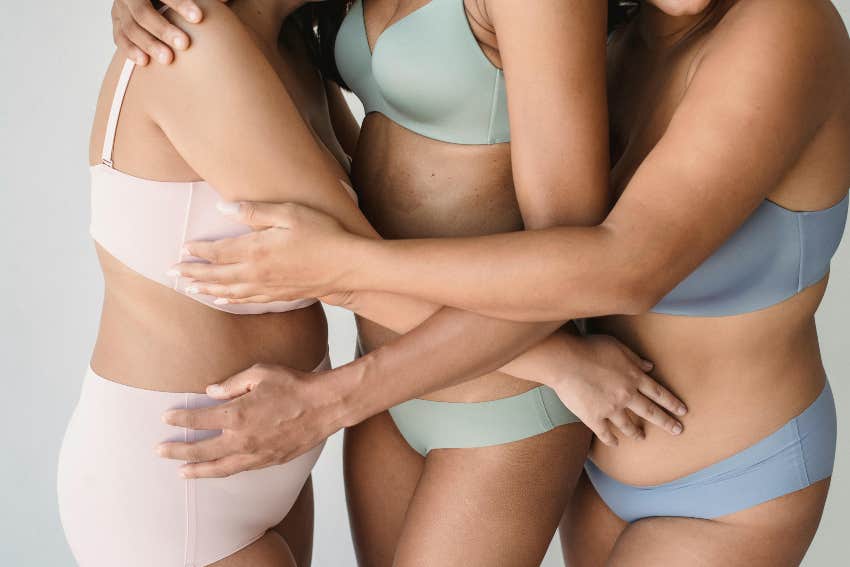Psychologist Reveals 5 Ways To Stop Obsessing About Yourself (Because It's Not A Good Look)
You've started to objectify yourself.
 Misha Voguel | Canva
Misha Voguel | Canva You don’t have to be a psychologist to know that American women are obsessed with their appearance and constantly worrying about their looks. We all want to know how to look pretty, how to look hot, and even how to look younger.
According to the American Society for Aesthetic Plastic Surgery, in 2021 Americans spent over $14.5 billion on aesthetic procedures, much of whom were women.
Objectification is the view of women as objects, a collection of body parts, and is often physical. Self-objectification occurs when we internalize that view. We come to look at ourselves as we imagine others see us, critiquing, judging, and frequently finding ourselves wanting.
Here are 5 ways to stop obsessing about yourself and your appearance:
1. Notice and counter triggers from others
We all have triggers that make us doubt ourselves. You meet an old acquaintance who jokingly remarks that you’re starting to show your age. Immediately, you’re in a mirror looking for the telltale lines, change in skin tone, and all the rest.
Instead, remind yourself that you know what you look like. You look the same as you did before you left the house when you thought you looked fine.
Someone else may be triggered by a remark about weight, as in, “You look like you’ve finally filled out a little.” Instead of jumping on the scale, you might ask yourself why someone would make such a remark. What are their issues? Did they mean you looked better? Don’t be pulled into their obsession with appearances.
2. Notice and counter triggers from the media
We’re bombarded by images of young, attractive, seemingly perfect women in film, television, and ads. You know, the ones our partner is staring at, mouth agape. Remind yourself that they are made up by experts, filmed in the best possible light, often airbrushed to perfection.
You are not 18 anymore, you may have put on a little weight, and you are not perfect. We’re all getting older, many of us are putting on weight and none of us are perfect. You are in the good company of real and amazing women.
 Pexels / Antonius Ferret
Pexels / Antonius Ferret
3. Decide how you want to look and tell your inner critic to shut up
You don’t have to be model-thin. It’s normal to have life show on your face. Your breasts do not need to be perky or perfect. Your stomach does not have to be washboard flat.
Your butt is the way it is and that’s great. Your clothing expresses your uniqueness; it doesn’t have to fit a certain model prescribed by social norms because you’re female.
4. Decide how you want to behave and ditch the “shoulds”
Women are subject to different rules when it comes to behavior in work and social settings. Instead, you get to decide if it’s okay to correct the facts in a conversation, be the smartest person in the room, and talk as much as you want, even if the person you’re correcting is a man, the person you’re smarter than is your partner and the person you’re providing with a lengthy explanation is your boss.
5. Make a plan to honor your body
This might mean having an exercise and healthy eating routine. I’m referring to a strategy to be healthy, not one to lose weight or that floppiness under your upper arms (good luck with that; it’s skin not fat!)
Find some type of movement that you enjoy (walking, running, biking, yoga, anything). As for your aesthetician, moderation is probably the key.
 Pexels / RF._.studio
Pexels / RF._.studio
If you’re looking for that sense of well-being, it will never come out of a cosmetic bottle, your closet, or your next shopping spree. It will not be attained with a scalpel, an injection, or a laser.
You’re far more likely to find improved life satisfaction from enjoying your work, being in satisfying relationships, and engaging in fun, healthy activities. You are awesome inside and out. You don’t need to be fixed.
Judith Tutin, Ph.D., ACC, is a licensed psychologist and certified life coach. She shares more work in her book, The Post-Divorce Survival Guide.

